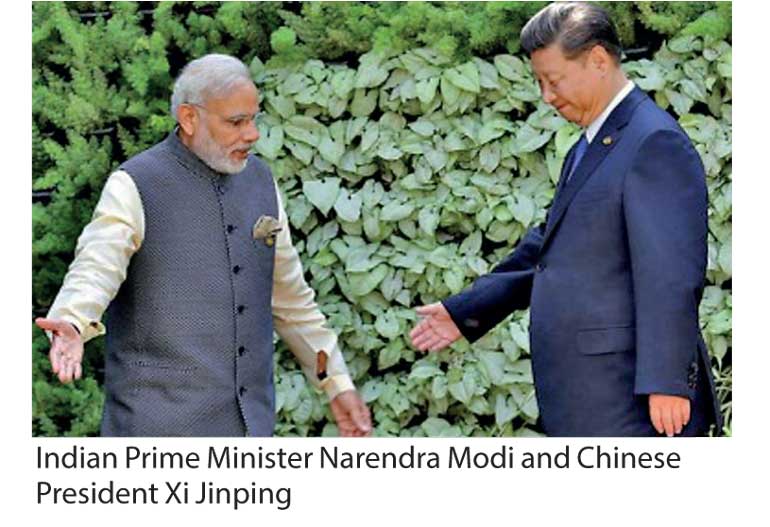Sunday Feb 22, 2026
Sunday Feb 22, 2026
Friday, 1 September 2017 00:05 - - {{hitsCtrl.values.hits}}

Beijing/New Delhi (Reuters): China on Wednesday sought to cast its strained ties with India in a positive light ahead of a likely meeting next week between President Xi Jinping and Prime Minister Narendra Modi following their most serious military confrontation in decades.
The countries agreed this week to end a more than two-month-old stand-off on their disputed Himalayan border, just in time for the start on Sunday of a summit of the BRICS grouping of nations, which also includes Brazil, Russia and South Africa.
It was normal for the two neighbours to have differences, Chinese Foreign Minister Wang Yi told a news briefing.
“What’s important is that we put these problems in the appropriate place, and appropriately handle and control them in the spirit of mutual respect and based on the consensus of both countries’ leaders,” he said.
“There is huge potential for cooperation between China and India,” Wang added, without giving details.
Xi and Modi are expected to hold talks on the summit sidelines in the southeastern city of Xiamen, officials in New Delhi said.
That has raised hopes they will try and repair a relationship that has deteriorated as the two countries find their interests diverge – and often clash – while competing for influence across Asia.
Neither country should claim victory after the stand-off, said former Indian Foreign Secretary Nirupama Rao, an expert on relations with China.
“The forthcoming summit can provide an opportunity to begin that restoration process when the leaders of the two countries meet,” Rao said. “Diplomatic and not military manoeuvres must be the name of the game in this relationship.”
Hundreds of troops were deployed on the Doklam plateau, near the borders of India, its ally Bhutan, and China after New Delhi objected to China building a road through the mountainous area.
The quiet diplomacy that ultimately ended in de-escalation was based on a principle of stopping “differences becoming disputes” that Modi and Xi had agreed in Astana in June, an Indian official with knowledge of the matter told Reuters.
Still, ties remain strained over the disputed frontier and India is deeply suspicious of China’s growing military activities in and around the Indian Ocean.
For its part, Modi’s Government has upset China with its public embrace of Tibetan spiritual leader Dalai Lama, whom the Chinese regard as a dangerous separatist, and growing military ties with the United States and Japan.
China has said its forces will continue to patrol in Doklam, which is claimed by Bhutan. Wang said he hoped India had learned a lesson from the incident.
Chinese road construction had stopped and equipment removed, said a second Government official in New Delhi aware of the situation.
But it was not clear whether China had given an assurance not to resume construction in a territory New Delhi says is too close for comfort for the security of its northeast.
India and China have deep historical and cultural links, but relations have seesawed since India lost a brief border war in 1962.
Chinese troops have made about 300 transgressions this year into territory claimed by India, the second official in New Delhi said, up from about 225 last year.
Media on both sides kept up a nationalistic drumbeat during the recent crisis.
Ties between the two appeared to be heading to a “breaking point”, with neither backing down from its own nationalist agenda, said one Beijing-based Western diplomat, speaking on condition of anonymity.
“From where India sits, it looks like China is trying to encircle them,” the diplomat added.
Still, the peaceful end to the Doklam stand-off was a positive sign, Mao Siwei, China’s former consul general in India’s eastern city of Kolkata, told Reuters.
“This is top leaders from both countries withstanding extreme domestic nationalist sentiment to come to a sensible decision,” said Mao, who is now retired.